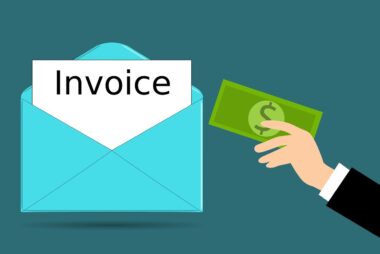How Cost Accounting Supports Financial Reporting
Cost accounting is a crucial aspect of financial reporting, providing insights into the cost of products or services. By systematically capturing, analyzing, and reporting cost data, organizations can understand where their money is going. Cost accounting principles help businesses allocate costs efficiently to specific cost centers, enabling clearer insights into profitability. Cost behavior analysis also plays a significant role, as understanding fixed and variable costs allows businesses to make informed financial decisions. It further helps management assess the financial health of the business by monitoring performance against budgeted costs. This is specifically vital when planning and making strategic decisions. A well-structured cost accounting system can enhance internal and external reporting as it provides detailed breakdowns of costs associated with production. The transparency offered by cost accounting facilitates effective communication with stakeholders. This includes not only management but also investors and regulatory bodies. Accurate and detailed cost reports not only support financial performance assessment but also serve compliance purposes. Companies can use these reports when preparing their financial statements for external reporting. Ultimately, cost accounting underpins the integrity of financial reporting, ensuring that it reflects true economic performance.
In addition to facilitating accurate financial reporting, cost accounting aids in decision-making processes by providing necessary information. Management can rely on cost data to evaluate the efficiency of production processes and identify areas where costs can be minimized. Cost accounting allows comparison between actual costs and budgeted costs, highlighting variances that require management’s attention. This variance analysis helps identify trends and unintended consequences of operational decisions. Moreover, by implementing both standard costing and activity-based costing methods, businesses can gain deeper insights into cost drivers. Organizations can focus on optimizing resource allocation through effective cost control mechanisms. These mechanisms involve continuous monitoring of costs and implementing corrective actions when necessary. An effective cost accounting system serves not only as a historical document but also as a roadmap for future financial strategies. Managers can utilize predictive analytics to forecast future costs based on historical data trends. Effective decision-making relies heavily on accurate cost reports that illuminate potential efficiencies. The dynamic relationship between cost management and financial reporting can drive a business toward sustained profitability. Thus, integrating cost accounting principles within financial reporting is essential for comprehensive business management.
Enhancing Performance Measurement
Performance measurement is vital for any organization’s success, and cost accounting is pivotal in this aspect. It enables organizations to assess performance metrics based on financial data closely linked to operations. With accurate costing, companies can evaluate not only the profitability of products and services but also the overall operational efficiency. Cost accounting also facilitates benchmarking, where organizations compare their financial data against industry standards or competitors. This comparative analysis can identify gaps and areas of potential improvement. Through accurate allocation of overhead costs, businesses can ensure they assess the true profitability of their operations. Furthermore, understanding product costs can aid in pricing strategies, ensuring that products are priced competitively while maintaining profitability. This holistic view provided by cost accounting supports strategic planning and operational adjustments. Organizations can identify the most profitable products and eliminate less profitable lines, enhancing overall performance. Thus, integrating these insights into financial reporting drives better alignment between operations and strategic goals. Ultimately, performance measurement through cost accounting helps foster a culture of continuous improvement and operational excellence, ensuring sustained growth.
The implications of cost accounting extend beyond internal use; they play a significant role in external financial reporting to stakeholders. Investors, creditors, and regulators depend on accurate cost data to evaluate an organization’s financial health. Comprehensive cost accounting practices ensure transparency and trust, as stakeholders want assurance that business performance metrics are reliable. Regularly updating cost data helps organizations stay compliant with regulatory requirements and prepares them for audits. Accurate and timely financial reporting bolstered by robust cost accounting practices can enhance a company’s credibility in the marketplace. Investors are more likely to commit resources when they understand the true costs behind profit margins. This generates a healthier organizational reputation, enhancing stakeholder relations. Shareholders also appreciate consistent cost breakdowns as they present a clear view of financial performance across different departments or product lines. As companies navigate complex market landscapes, effective cost accounting becomes indispensable for strategic financial management. Moreover, this discipline offers insights into pricing strategies, supply chain dynamics, and operational efficiency, influencing long-term strategies and initiatives. Ultimately, the intersection of cost accounting and financial reporting maintains the trust and confidence of investors and regulators.
Cost Control and Organizational Strategy
Cost control is integral to an organization’s success, and cost accounting provides the framework needed to achieve this goal. By tracking and analyzing various costs associated with operations, organizations can identify unnecessary expenditures and implement cost-saving initiatives. These insights are crucial when formulating strategic plans and budgets, ensuring that resources are allocated efficiently across departments. With reliable cost data in hand, managers can make informed decisions that lead to reduced operational inefficiencies and optimized financial performance. Comprehensive cost accounting allows businesses to apply various methodologies for tracking costs associated internally, for departments, and externally for projects. The implementation of these methodologies, such as target costing or just-in-time costing, supports proactive cost management. Additionally, identifying key performance indicators linked to cost efficiency helps keep core business operations aligned with overall company objectives. This alignment ensures that financial and non-financial metrics work synergistically to enhance profitability. Financial reporting enriched by these insights presents stakeholders with a clear overview of the organization’s commitment to efficiency. Furthermore, using cost accounting principles enables long-term planning, allowing organizations to anticipate future changes in the economic environment.
Implementing effective cost accounting strategies can significantly influence a company’s financial health. Consistent monitoring of costs, coupled with regular financial reporting, ensures that businesses can identify trends and make necessary adjustments promptly. This adaptability is essential, particularly during market fluctuations or economic downturns. Organizations that apply sound cost accounting principles have an advantage because they can adjust their strategies based on real-time cost performance and financial metrics. Furthermore, cost accounting supports the integration of various technologies and systems designed to enhance efficiency. By adopting advanced software solutions, businesses can automate their cost tracking and reporting processes, resulting in substantial time and resource savings. These efficiencies translate into better decision-making as stakeholders gain immediate access to relevant cost data. Cost accountants play a crucial role in guiding management about suitable technology solutions that align with the organization’s financial strategies. This relationship fosters a collaborative environment where financial data drives operational effectiveness. Additionally, as businesses expand, effective cost accounting practices ensure that the complexity of cost structures remains manageable. With the right systems in place, organizations can continue to grow sustainably without compromising financial integrity.
Conclusion: The Value of Cost Accounting
In conclusion, cost accounting is indispensable for effective financial reporting, decision-making, and overall organizational strategy. The insights gained from cost accounting allow businesses to understand their financial dynamics more effectively. By utilizing principles of cost control, businesses can enhance profitability, maintain competitiveness, and ensure transparency with stakeholders. Moreover, the ongoing emphasis on accurate costing data helps organizations navigate complexities within their operational environment. Increasingly, accurate financial reporting hinged on cost accounting strengthens stakeholder trust and business credibility. Companies that prioritize cost accounting as a critical function within their financial management frameworks position themselves for long-term success. They are better equipped to respond to market changes and evolve alongside shifting consumer preferences. The integration of cost accounting into overall business strategy translates to a strategic advantage in achieving operational efficiency. Therefore, organizations must recognize the role of cost accounting not just as a compliance tool but as a pivotal component of their financial health and organizational success. Making informed decisions influenced by precise cost data results in an agile, resilient business ready to face future challenges confidently.
In summary, cost accounting improves financial reporting and enhances strategic decision-making across all business operations. Moreover, organizations can optimize cost structures and resource allocation through intricate cost analysis, maintaining a competitive edge. By embracing cost accounting principles, businesses can establish a clearer understanding of their financial performance while guiding future growth strategies. The continued evolution of financial environments necessitates an adaptive approach to cost accounting methods. As trends in accounting practices innovate, the relevance of cost accounting remains unwavering. Hence, educating staff about the value of cost accounting is equally crucial for reaping full benefits. Organizations should foster a culture of cost awareness to encourage proactive managing of financial resources. Overall, embracing the full scope of cost accounting principles creates a foundation for achieving sustainable profitability, positive growth, and stakeholder confidence. This holistic approach can streamline processes and enhance operational effectiveness across various departments. Therefore, organizations that integrate cost accounting into their operational fabric can navigate complex financial landscapes with greater success. Leveraging reliable costing insights can help businesses prioritize investments, maximize profitability, and ultimately secure a strong foothold in their respective markets.





